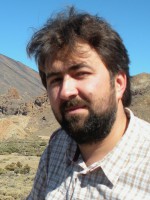abstract
In the present study, the influence of minor cerium (Ce) additions (up to 1 wt.%) to AM50 magnesium alloy on the plasma electrolytic oxidation (PEO) process and the corrosion performance of the PEO coatings were studied. Therefore, a silicate-based PEO coating was deposited on AM50 containing 0, 0.5 and 1 wt.% Ce under the same processing conditions. The resulting surface morphology, cross-sectional microstructure, phase and chemical compositions of the coatings were determined using scanning electron microscopy (SEM) equipped with energy dispersive X-ray spectroscopy (EDS) and X-ray diffraction analyses (XRD). The corrosion behaviour of the coatings was evaluated by salt spray and electrochemical corrosion tests. The results show that the growth rate of the coating is reduced, but the thickness is becoming more uniform if cerium is added to AM50 alloy. However, the phase composition and coating morphology are hardly influenced, but the corrosion properties reveal large differences suggesting that the porous PEO coatings have to be considered as a system of coating and substrate. A more uniform corroding substrate such as the cerium alloyed AM50 provides much better protection in combination with a PEO coating than the pure AM50. Flaking-off of large coating areas was observed due to the volume increase caused by corrosion products forming in the interface. Such a severe localised corrosion in the interface causing delamination of the coating can be suppressed by cerium addition. (C) 2014 Elsevier B.V. All rights reserved.
keywords
MICRO-ARC OXIDATION; AZ91D MAGNESIUM ALLOY; PHOSPHATE ELECTROLYTES; PEO COATINGS; SILICATE; MICROSTRUCTURE; RESISTANCE; FILMS; SOL; PERFORMANCE
subject category
Materials Science; Physics
authors
Muhaffel, F; Mert, F; Cimenoglu, H; Hoche, D; Zheludkevich, ML; Blawert, C
our authors
Groups
acknowledgements
The authors want to express their gratitude to Mr. G. Meister, Ms. S. Schubert, Mr. V. Heitmann and Mr. U. Burmester for their technical support Financial support from Turkey Council of Higher Education (YOK) scholarship for PhD study of Dr. Faruk Mert in Helmholtz-Zentrum Geesthacht (HZG) is also appreciated.


